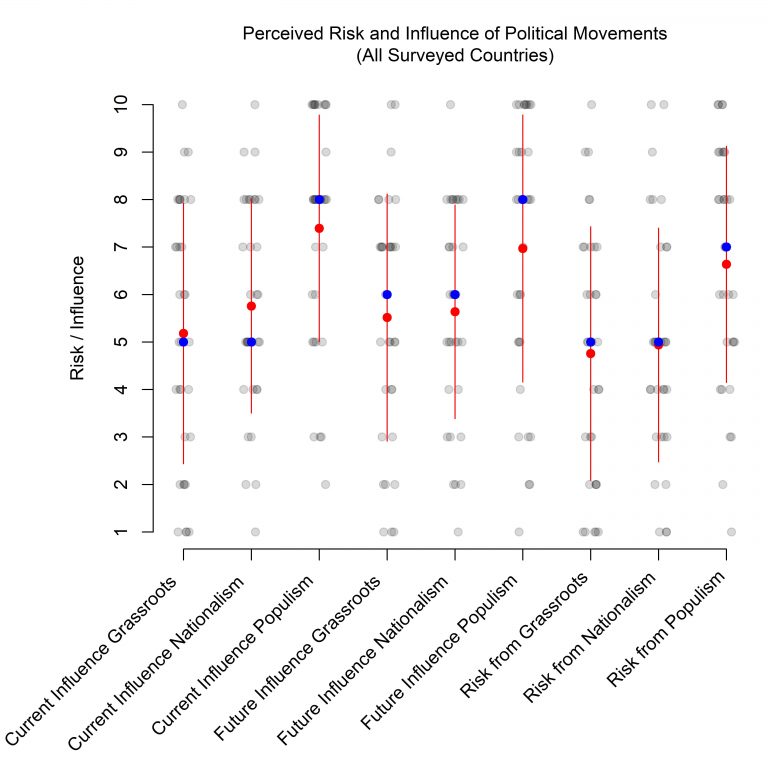ISSUE NO. 14: TURBULENT TIMES – SOCIOPOLITICAL TRENDS IMPACTING LATIN AMERICA
News & Notes

Acorn International
1702 Taylor St, Suite 200B
Houston, TX 77007, USA
1213 Purchase St
New Bedford, MA 02740, USA
Jan 15, 2020 | Notes
What a year in Latin America! The “Latin American Spring” erupted in 2019. Violent anti-government protests in Nicaragua that started in 2018 were followed by the same events in Ecuador, Chile, Bolivia and Colombia. National elections in Mexico, Brasil and Colombia ushered major political shifts to the center-right and right, while Argentines returned Peronists to power.
Despite the resilience of populist autocracies in Venezuela and Nicaragua, we have seen increases in nationalism, and grass roots opposition as sociopolitical trends define the direction of the business and political environment in countries throughout the region. A common thread driving these changes was outrage with stalled economic recovery and increasing divisions in wealth distribution. As one observer noted: “In Latin America, dissatisfaction within democracy is threatening to mutate into dissatisfaction with democracy.”
We’re a leader in helping industry and investors understand and manage social/non-technical risks worldwide, and we have a particularly strong presence and interest in Latin America – so it’s important to us to understand what is underlying the changes and driving sociopolitical directions throughout the region. The three most visible socio-political trends that we identify in the region, are:
– Populism: understood as the trend or socio-political movement led by political leaders (“cuadillos”) that focus their political discourse on the struggle against the establishment and the traditional socio-political structures
– Nationalism: understood as the socio-political trend or movement that seeks to protect and safekeep national interests over foreign
– Grass-root Movements: understood as the socio-political movement disconnected from traditional political parties which claim interests of particular social groups
Driven by this interest, we recently surveyed partners, clients, and friends throughout South & Central America (we did not reach out to Caribbean countries) to ask three questions:
1. Please indicate how you would characterize the influence that the three trends have in defining the current socio-political environment of your country (1-very low to 10-very high)
2. How would you characterize the influence of the three trends in the way the national government will lead the country in the next 5 years?
3. Please indicate your opinion on the level of risk to international economic investments and activities against the prevalence of both socio-political movements/trends in your country?
We received responses from 15 countries (the survey-weighted the number of invited respondents by country population size) revealing some important, preliminary results. The figure below provides raw data breakdown, and some observations are presented below for consideration and further evaluation.

– Populism is more front-of-mind than nationalism or grassroots movements in terms of both current/future influence and perceived risk to investment
– Populism is perceived as the most important determinant of the sociopolitical environment both now and in 5 years in the respondent countries – it is also most important as perceived risk to investors and international economic activities in those countries.
– The influence of Nationalism is expected to remain about the same 5 years in the future. The average influence rating for Populism is expected to decrease slightly while the rating for Grassroots is expected to increase slightly during the same period. This is mainly due to 10% fewer extremely high ratings for populism in the future vs fewer extremely low ratings for populism in the future, suggesting some may see grassroots emerging from the shadows of sociopolitical influence.
– There is no notable difference in the level of how respondents perceive (a) the importance of these trends in defining their current and future sociopolitical environments vs (b) the extent to which these trends represent risks to investors and international activities in the countries. If anything, the perceived level of risk to external parties is slightly (not statistically significant) lower than the perceived importance on national sociopolitical environment.
– Given the very high level of attention the international press is giving to sociopolitical risk in the region, these results suggest that Latin Americans may have a higher level of risk tolerance for the sociopolitical trends impacting their social and economic systems than foreign investors (or at least international media outlets) do.
– Nearly every question got responses ranging from 1-10. This suggests that there are still widely varying opinions on the presence and influence of these trends throughout the region.
While those surveyed are all known and trusted observers of their countries, the sample size for this survey was limited and can only be considered a statistically insignificant indicator for outlooks of the region’s 600 million people. In addition, we’re aware that a return from the relative calm of the holidays, along with maturation of new political leadership policies and upcoming elections, may open the door for adjusted outlooks. On top of this, we feel strongly that understanding these trends more deeply matters, mainly because it can help illuminate how their evolutions may impact investment decisions for international industries and lenders. With this in mind, we’ll be launching a broader survey of these trends as 2019 progresses.
Watch this space for more detailed survey and analysis of this important subject. In the meantime, let us know your thoughts on the subject by emailing us at info@acornintl.net. We look forward to hearing from you.
Acorn International LLC delivers social and environmental risk management consulting services to the extractive industries and investors worldwide. We work with local partners in over 70+ countries worldwide. Use of these local specialists is paramount, particularly in developing countries, where information is often scarce, second-hand, and unreliable. We look forward to engaging in continuous improvement for the industry and building capacity with our partners.
| Cookie | Duration | Description |
|---|---|---|
| cookielawinfo-checkbox-analytics | 11 months | This cookie is set by GDPR Cookie Consent plugin. The cookie is used to store the user consent for the cookies in the category "Analytics". |
| cookielawinfo-checkbox-functional | 11 months | The cookie is set by GDPR cookie consent to record the user consent for the cookies in the category "Functional". |
| cookielawinfo-checkbox-necessary | 11 months | This cookie is set by GDPR Cookie Consent plugin. The cookies is used to store the user consent for the cookies in the category "Necessary". |
| cookielawinfo-checkbox-others | 11 months | This cookie is set by GDPR Cookie Consent plugin. The cookie is used to store the user consent for the cookies in the category "Other. |
| cookielawinfo-checkbox-performance | 11 months | This cookie is set by GDPR Cookie Consent plugin. The cookie is used to store the user consent for the cookies in the category "Performance". |
| viewed_cookie_policy | 11 months | The cookie is set by the GDPR Cookie Consent plugin and is used to store whether or not user has consented to the use of cookies. It does not store any personal data. |